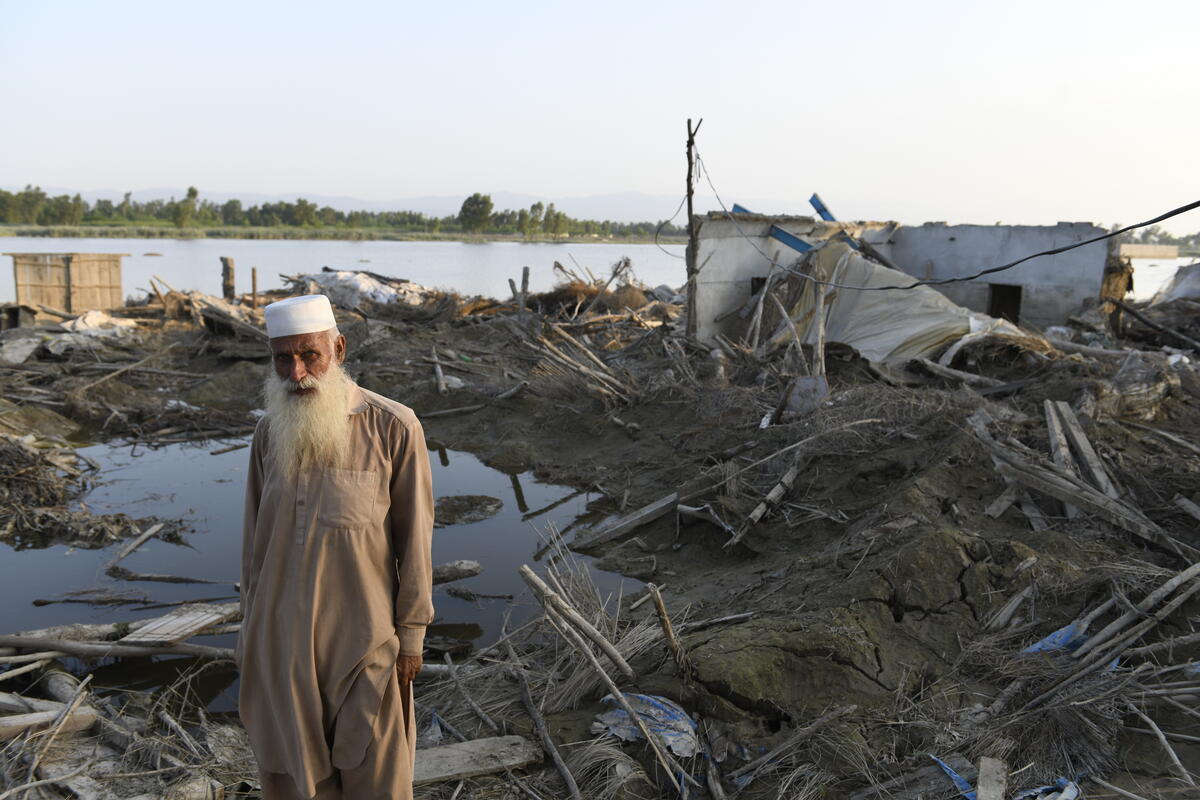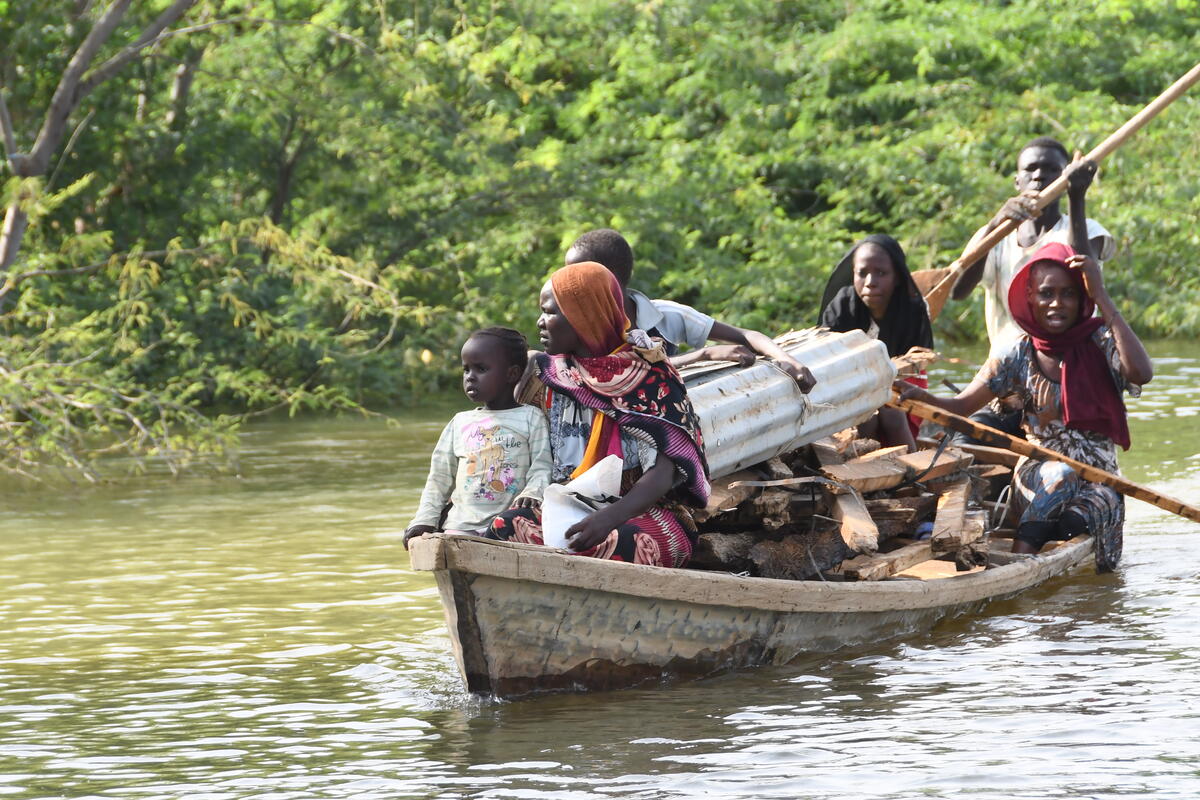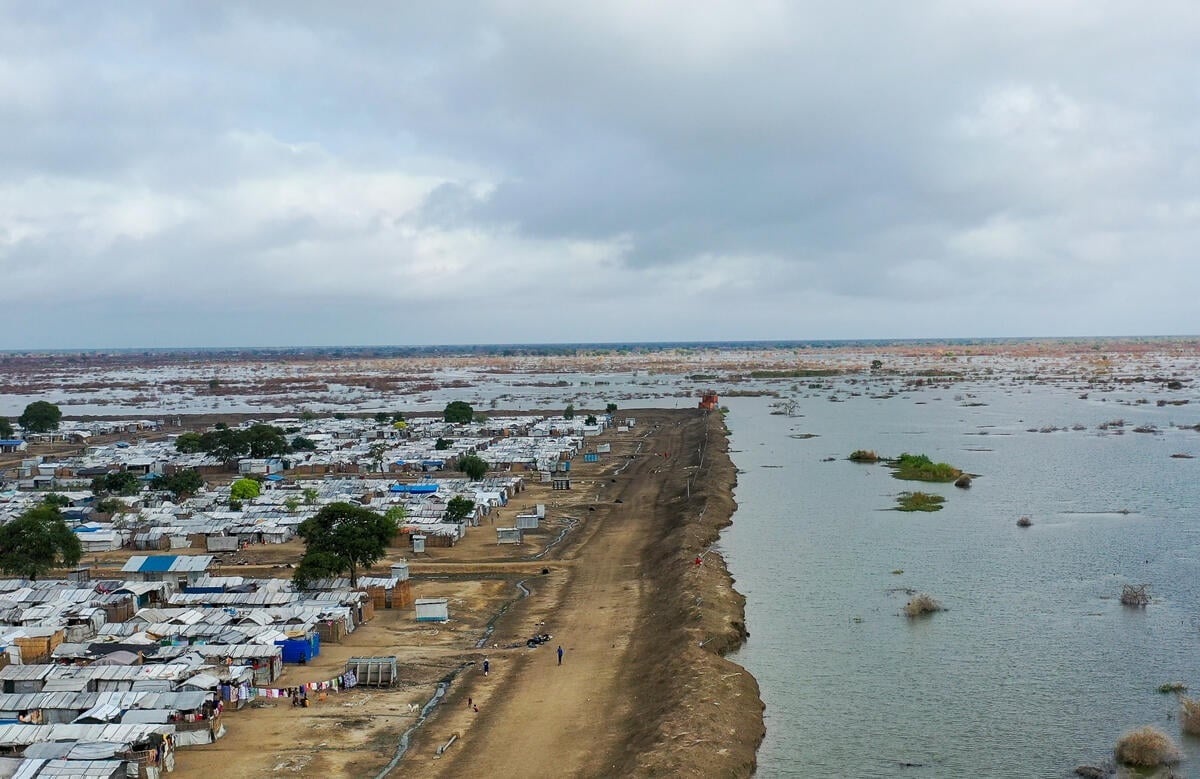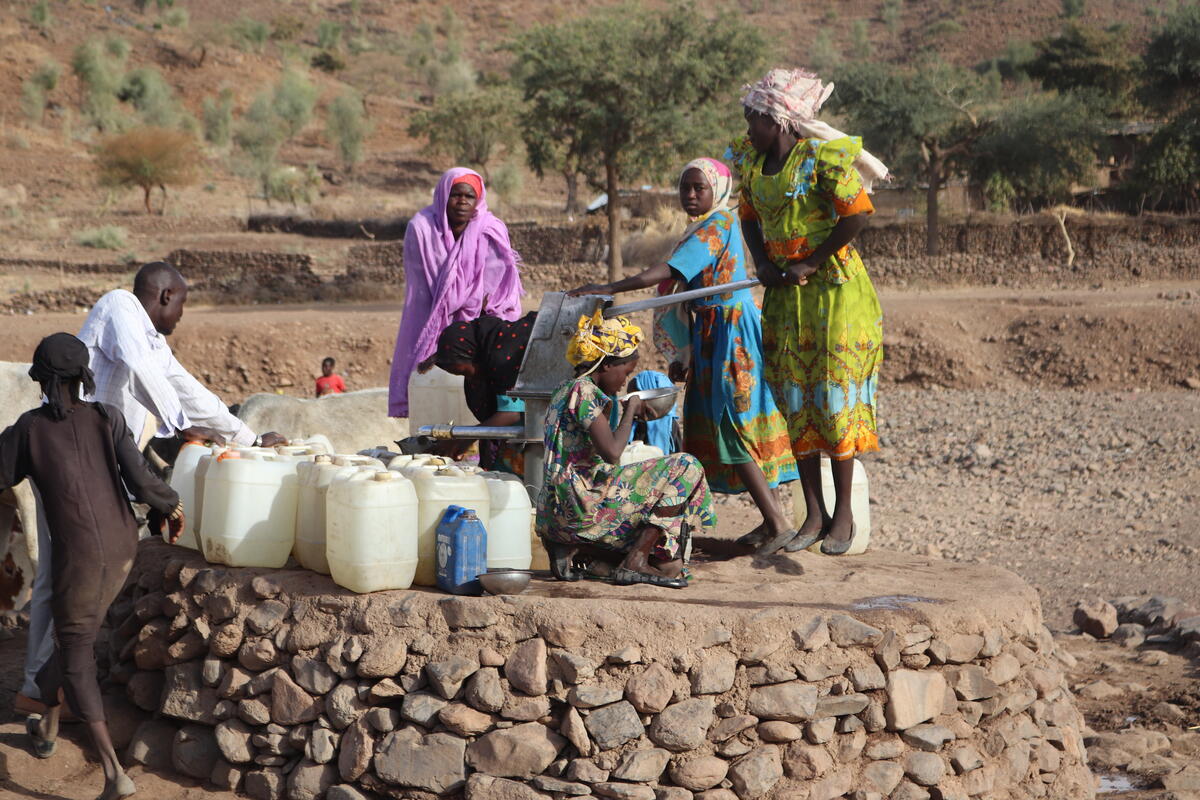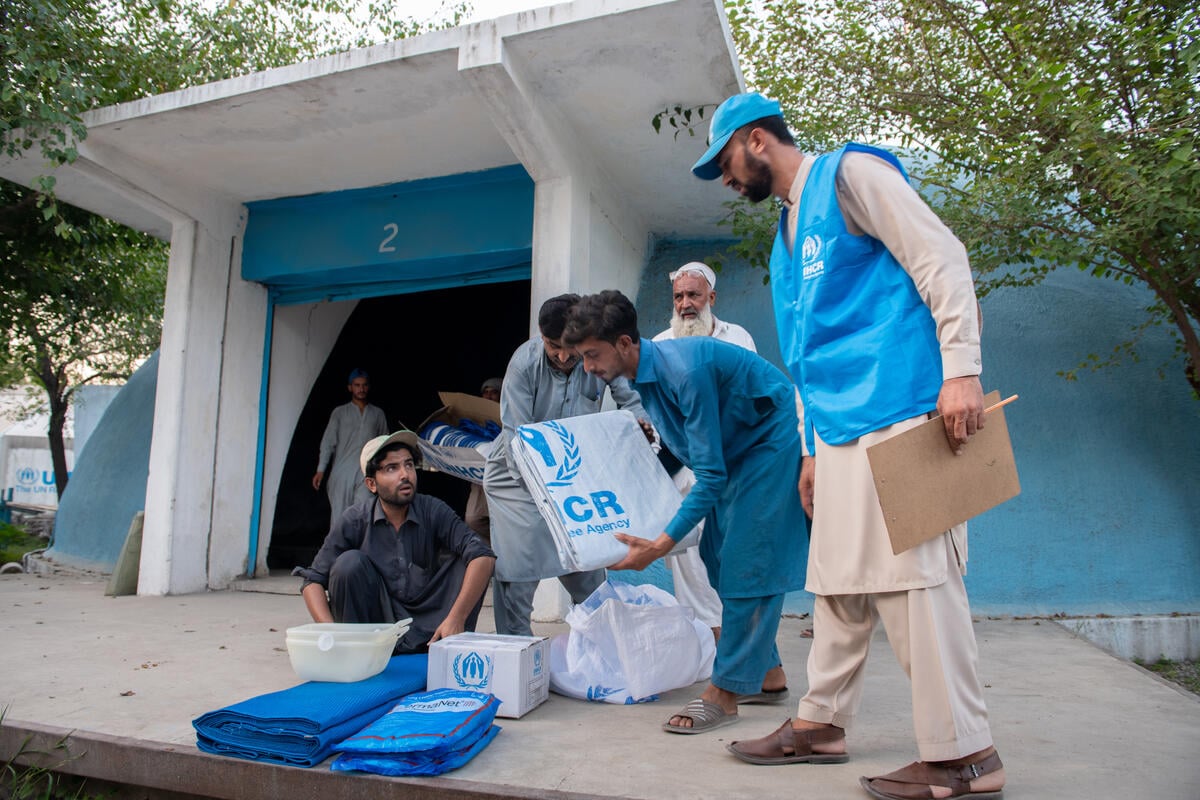Heavy rains and flooding hamper humanitarian aid efforts in eastern Chad
Heavy rains and flooding hamper humanitarian aid efforts in eastern Chad

ABECHE, Chad, September 19 (UNHCR) - Heavy rainy season downpours have left areas of eastern Chad flooded and seriously hampered efforts by UNHCR and other aid agencies to help tens of thousands of Sudanese refugees and displaced Chadians.
The rains have eased over the past week but flooding continues to cut land access to the Koukou Angarana region in the south-east and has forced locals and displaced people in the area to head for higher ground. Goz Amir, one of 12 UNHCR-run camps housing some 230,000 Sudanese refugees in east Chad, is in the flooded area. There are also 170,000 displaced Chadians in the east.
There have been no reports of deaths, but many houses have been destroyed or damaged by the floods, according to UNHCR field reports. Food is also not a major problem because supplies were stockpiled in camps in April and May. But UNHCR is having difficulty supplying field staff with various goods, while the agency and others have delayed or cancelled missions in the region.
"UNHCR and its partners are helping several hundred displaced families and host communities who have been affected by the rains and sought shelter on higher ground," said Bryan Hunter, UNHCR protection officer in Goz Beida, north-west of Koukou Angarana. UNHCR staff in Goz Beida have been forced to rent carts from locals so that they can help the flood-displaced, he added.
Aid can only be transported to some outposts by air and even then the rain often makes airstrips unusable. Earlier this month, two flights to Goz Beida were cancelled for two days in a row because the airstrip could not be used.
Since the rains began in mid-June, flooded wadis have made it almost impossible to drive between the UNHCR logistics hub at Abéché, the main town in eastern Chad, and Farchana, the gateway to several refugee camps near the border with Sudan's Darfur region. The floods have cut off some of the camps.
UNHCR staff returning recently from a camp near Farchana could not cross one wadi and had to leave their vehicles under armed guard at the camp while they crossed on foot. A vehicle belonging to the Hebrew Immigrant Aid Society was knocked over by the current when trying to cross the wadi.
Two weeks ago another UNHCR team had to spend the night with local communities in the Hadjer Hadjid and Arkoum areas after rains caused the wadi water levels to rise.
"We haven't seen such flooding in the past two years. There was so much rain that the roads and wadis became almost impassable," said Khalil Ousmane, a UNHCR driver at Farchana. He said that taking detours to avoid flooded areas meant that journeys took up to three times as long as normal. Drivers always took bedding with them in case they had to sleep en route.
Exposure to the elements was also causing physical discomfort for refugees and displaced people in eastern Chad as well as putting added logistical and financial pressure on aid agencies.
"With most shelters in camps being in a poor state, the number of people asking for new tents grows during and after the rainy season," said Julien Sangtam, a UNHCR community services assistant in the town of Bahai. "Their concerns are real and justified, but we can't satisfy them because of logistical problems."
For the moment, everyone is waiting for the rainy season to end so that things can get back to normal. But that won't be until late September or early October.
By Djerassem Mbaïorem in Abéché, Chad


